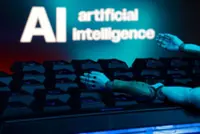THERE aren’t many sectors left where artificial intelligence (AI) has not seeped in and this includes education.
Specifically, within higher education, it has the potential to improve learning outcomes and give birth to new research.Universiti Malaysia Kelantan Institute for Artificial Intelligence and Big Data (AIBIG) director Dr Muhammad Akmal Remli said higher education is particularly well-suited to adapt to AI compared to other industries, especially with the rise of generative AI (GenAI).
“In fact, all courses can benefit from incorporating AI into their lessons.
The key is not to replace learning outcomes or content with AI, but to use AI to assist in student understanding and make the learning process easier and more enjoyable,” he told StarEdu.
ALSO READ : AI-ding online learning
Although in the “early days” AI was considered more beneficial to the science, technology, engineering and mathematics (STEM) fields, Muhammad Akmal said it is now clear that AI can benefit all sectors.
“(Even) language and humanities studies can integrate AI effectively and explore new pedagogical approaches to ensure that it is applied ethically, by considering issues of fairness, bias and human values,” he said.
At the classroom level, Muhammad Akmal said he is seeing lecturers becoming creative in their teaching methods by utilising AI.
“Some rely heavily on AI, while others use it for specific aspects, such as preparing materials like slides and assessments,” he said.
He added that educators can offer more diverse and engaging learning experiences by integrating AI into their teaching and learning (PdP).
“It has the potential to allow university lecturers to concentrate on the most vital aspect of their work: teaching and engaging with students.
“Instead of merely delivering a curriculum, educators can use AI to enhance the educational experience, making it more interactive and personalised.
“For example, during brainstorming, AI can generate new ideas, making it easier to create teaching materials and design assessments,” he said, adding that it can also suggest content and structure courses to enhance learning experience when planning the curricula.
From a research perspective, Muhammad Akmal said many lecturers are now using AI tools to facilitate their research and publication processes including conducting literature reviews, finding the latest research papers, and organising references.
ALSO READ : Measures in place for digital integration
It can serve as an editor by checking grammar, spelling and overall coherence in their writing.
“This makes the research process faster and more comprehensive,” he said, adding that it is also useful in preparing manuscripts, grant proposals and other academic documents.
Two countries, he said, come to mind when one thinks about successful incorporation of AI into the higher education sector: the United States and China.
Both countries, he said, have heavily invested in creating a robust AI ecosystem.
Similarly, Singapore is also heavily investing in AI to maintain a competitive edge in education.
“Various initiatives have been launched, such as creating a pool of AI scientists from universities to build a strong AI ecosystem, and incorporating AI into their teaching and learning processes while ensuring that students continue to develop critical thinking and independent learning skills,” he added.
Globally, Malaysia ranks 23rd in the Government AI Readiness Index 2023 with a score of 68.71 (see infographic). The country is also ranked second in Asean with Singapore ranking higher and sitting at number two globally.
Muhammad Akmal added that Malaysia’s higher education sector is gradually becoming more prepared to embrace AI in teaching.
“When used correctly, AI can free faculty members to spend more time with students, fully engaging in their development and supporting their learning journey,” he said.
His views are echoed in a 2023 National Professors Council study, which found that the use of GenAI, such as ChatGPT, has had a positive impact on the PdP process, including enabling active learning, and providing personalised learning methods and fast and accurate feedback.
Almost 80% of the respondents of the study were public university academics who agreed to use GenAI in their lessons.
Nearly 90% of the total respondents (88.1%) said they believe GenAI can play a part in research.
While AI has made an academic’s work more challenging, Universiti Teknologi Malaysia (UTM) AI Faculty dean Assoc Prof Dr Mohd Naz’ri Mahrin said it has, at the same time, made teaching, learning and research more fruitful.
Mohd Naz’ri, who also teaches software engineering, said his students can now use ChatGPT to generate programming codes and create systems in under five minutes.
With AI, software engineers only need to know what prompts they should enter into the AI generator and spend a bit of time modifying any “faulty parts” of the code to ensure the system is functional, he explained.
He, however, does not see AI taking over the role of a lecturer or academic.“
Instead, it will be there to augment and support us. It can help us automate parts of our lecture,” he said, adding that AI can also be used to monitor students’ learning activities and outcomes while chatbots can be developed to answer questions by students if they are unable to contact or meet the lecturer.
Stressing the need for teaching styles and materials to change to accommodate what AI can bring to the classroom, he said this is the biggest challenge for academics “as we have to change”.
Practical applications
Asia Pacific University of Technology & Innovation (APU) students share their experiences with AI:
Having AI knowledge has allowed me to innovate and come up with more effective and efficient solutions for different sectors such as healthcare, manufacturing and finance throughout my studies. Nonetheless,
AI is still underexplored in many industries, making the field more sought after than ever before as it offers many opportunities to those who are well-equipped with skills and knowledge in AI development
.Leong Kah Meng, 22
There are certain tasks that AI can perform more accurately and consistently compared to humans. AI tools can help organise data and document content logically, making it easier to understand the information. It is also incredibly helpful for learning and generating new ideas, and can help quickly analyse and provide quality insights for brainstorming or planning new projects.
AI can also automate software testing and deployment, simplifying the process and saving time for other tasks.
Ho Hooi Yi, 22
AI has had a positive impact on productivity in education and industry. Knowledge of AI is a massive advantage in the tech industry. Companies recognise AI as useful in many operations for automation and intelligent decision-making. Therefore, knowledge in this area attracts companies that are looking to grow and develop.
Ahmad Awad, 20







